Information and electric vehicles of the [object Object] brand
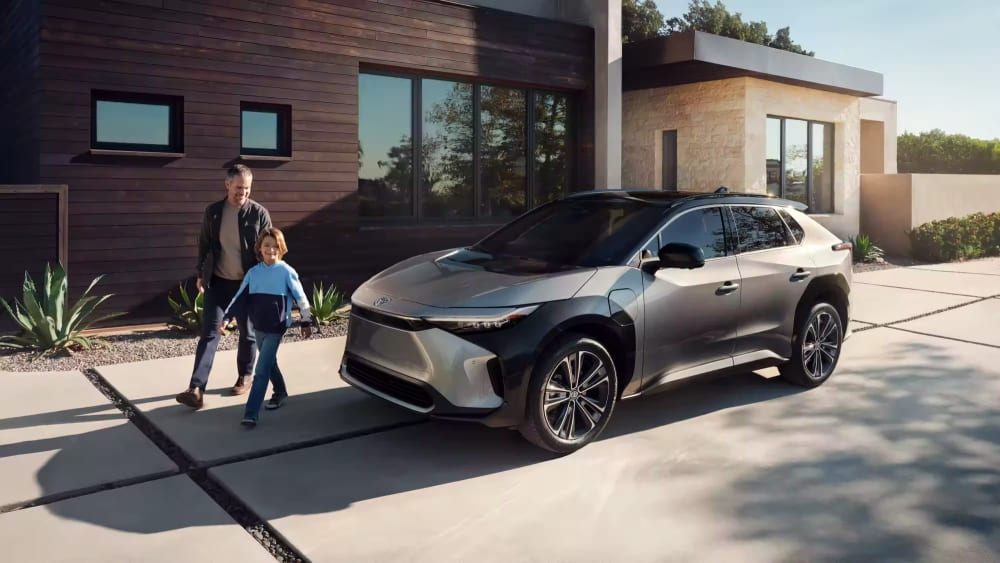
![[object Object] logo](https://res.cloudinary.com/donyiousk/image/upload/w_80/f_auto/c_scale,w_500/v1/car/elwquidzcsruijwmaenc)
Toyota
Unleash the power of zero.

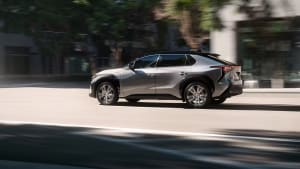

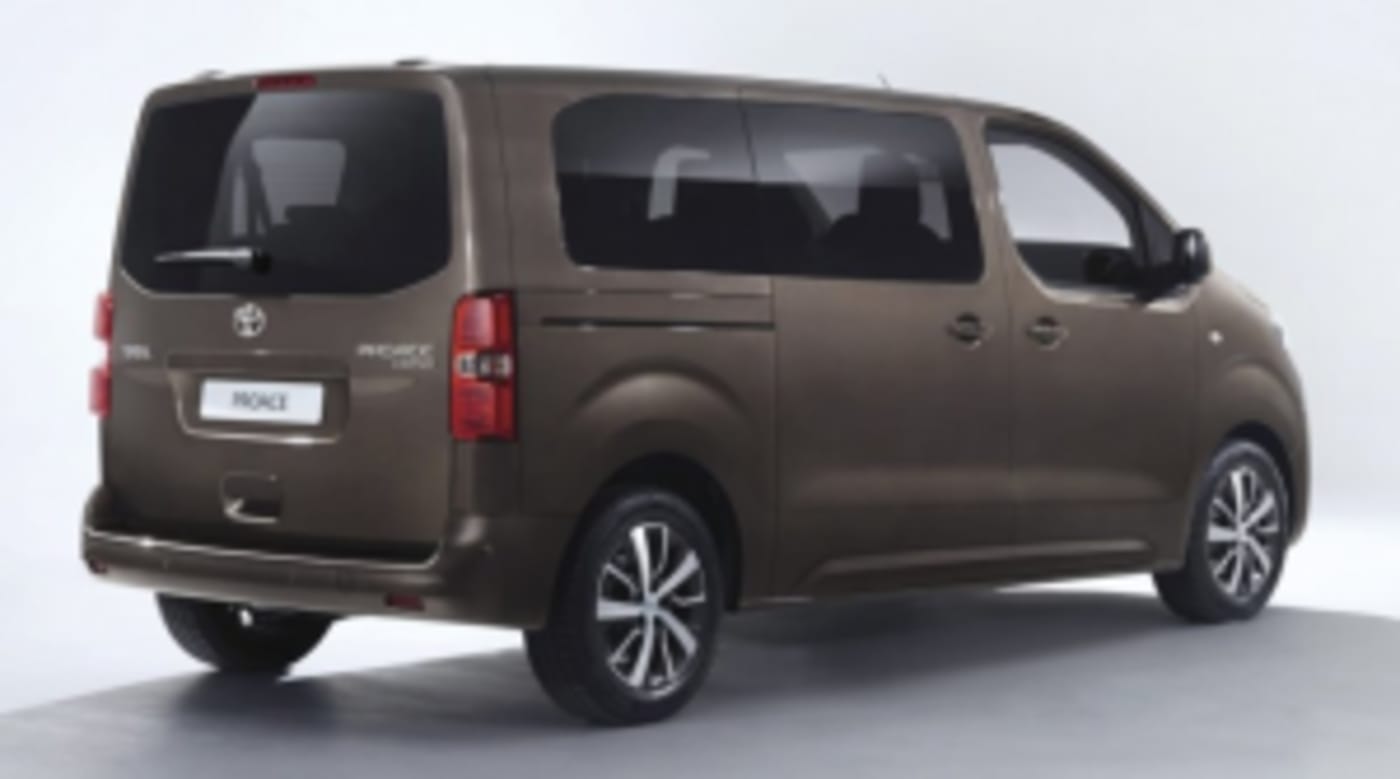


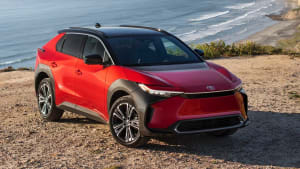
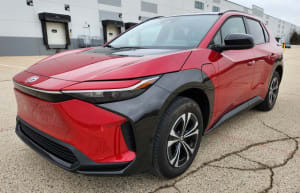

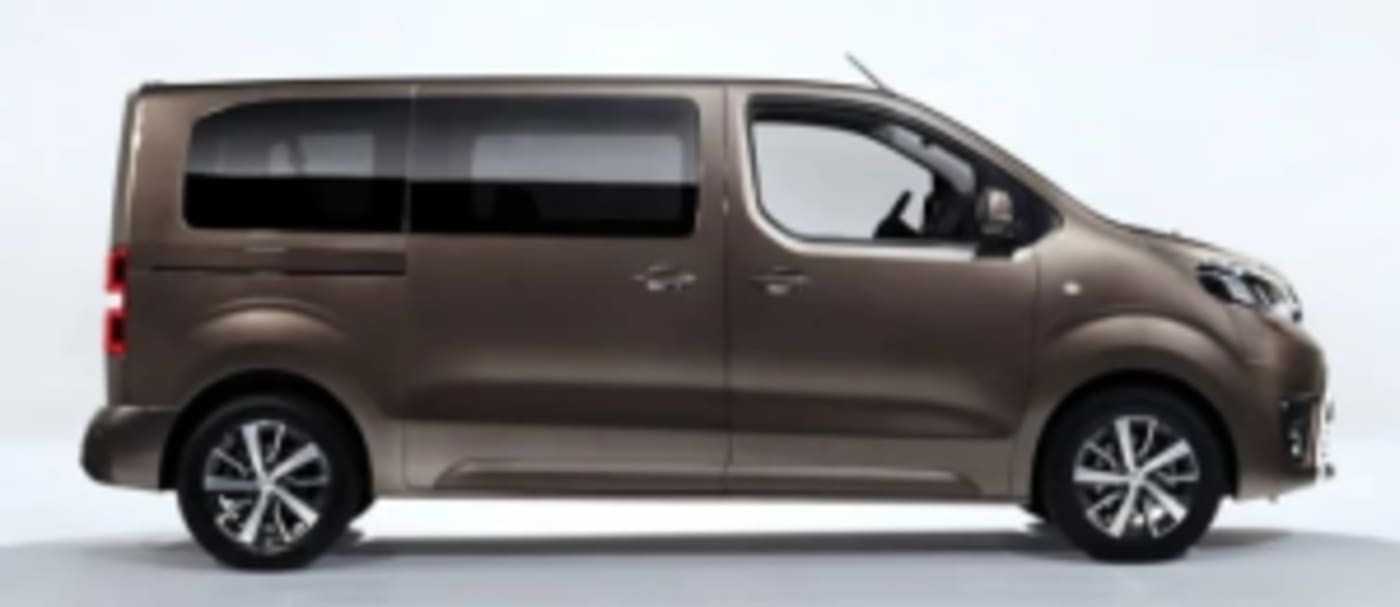
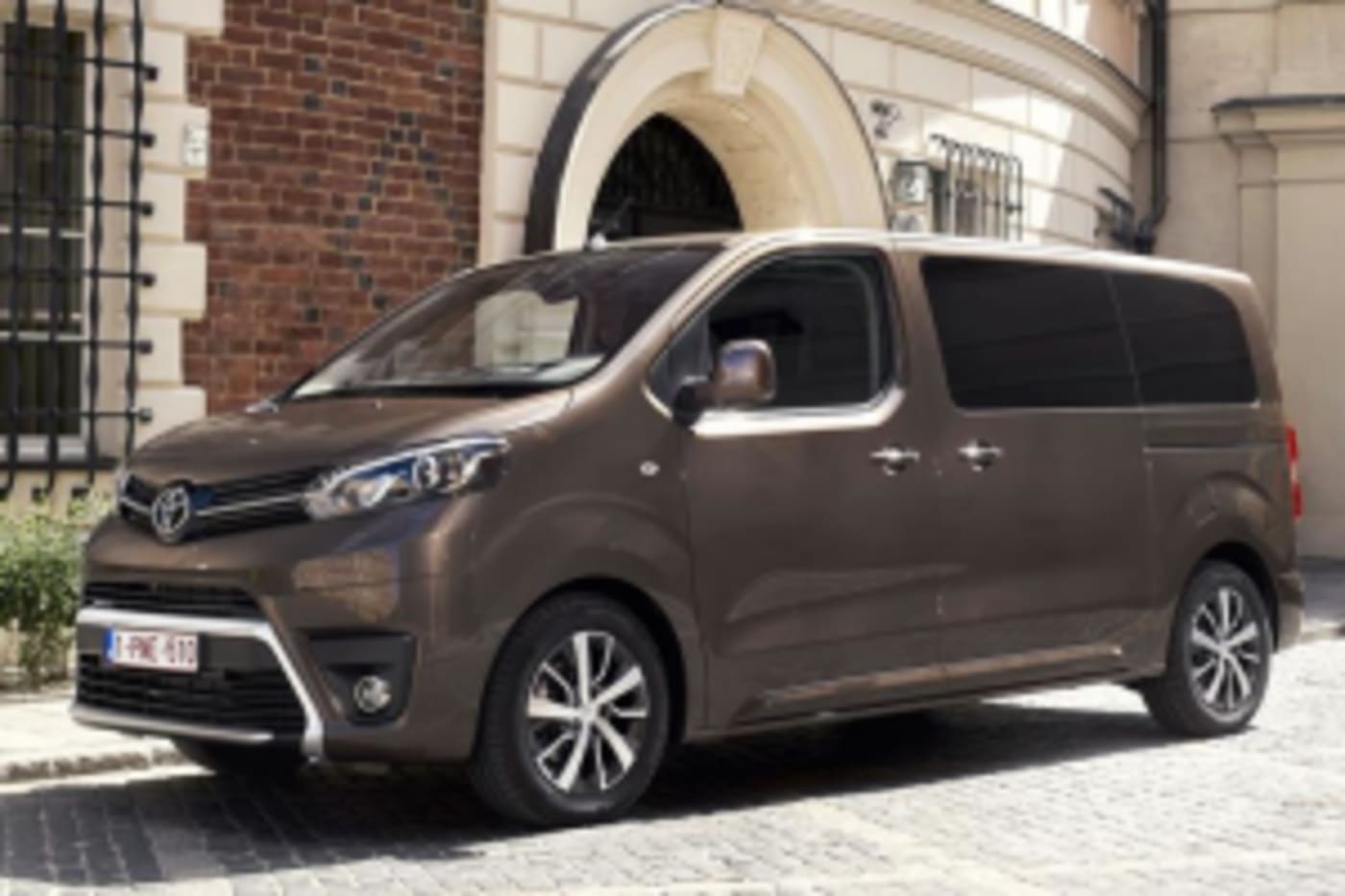
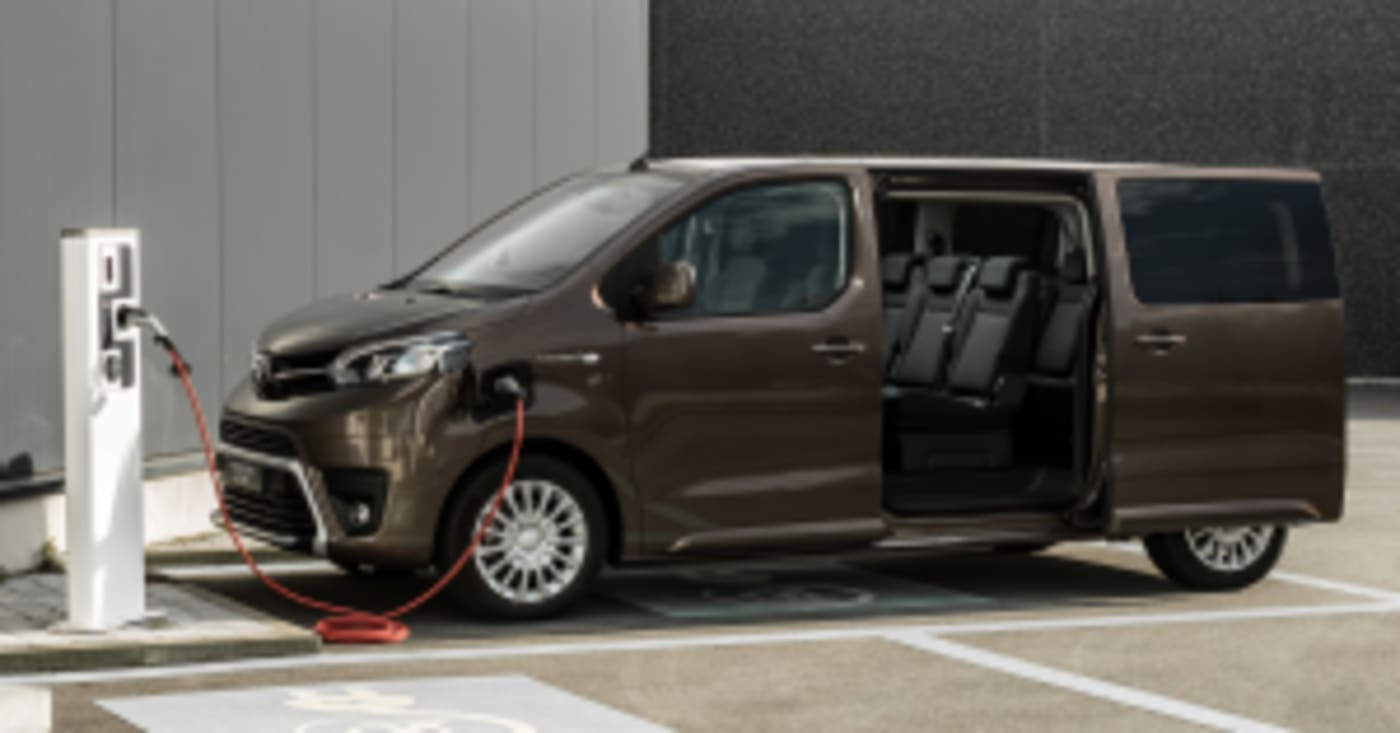

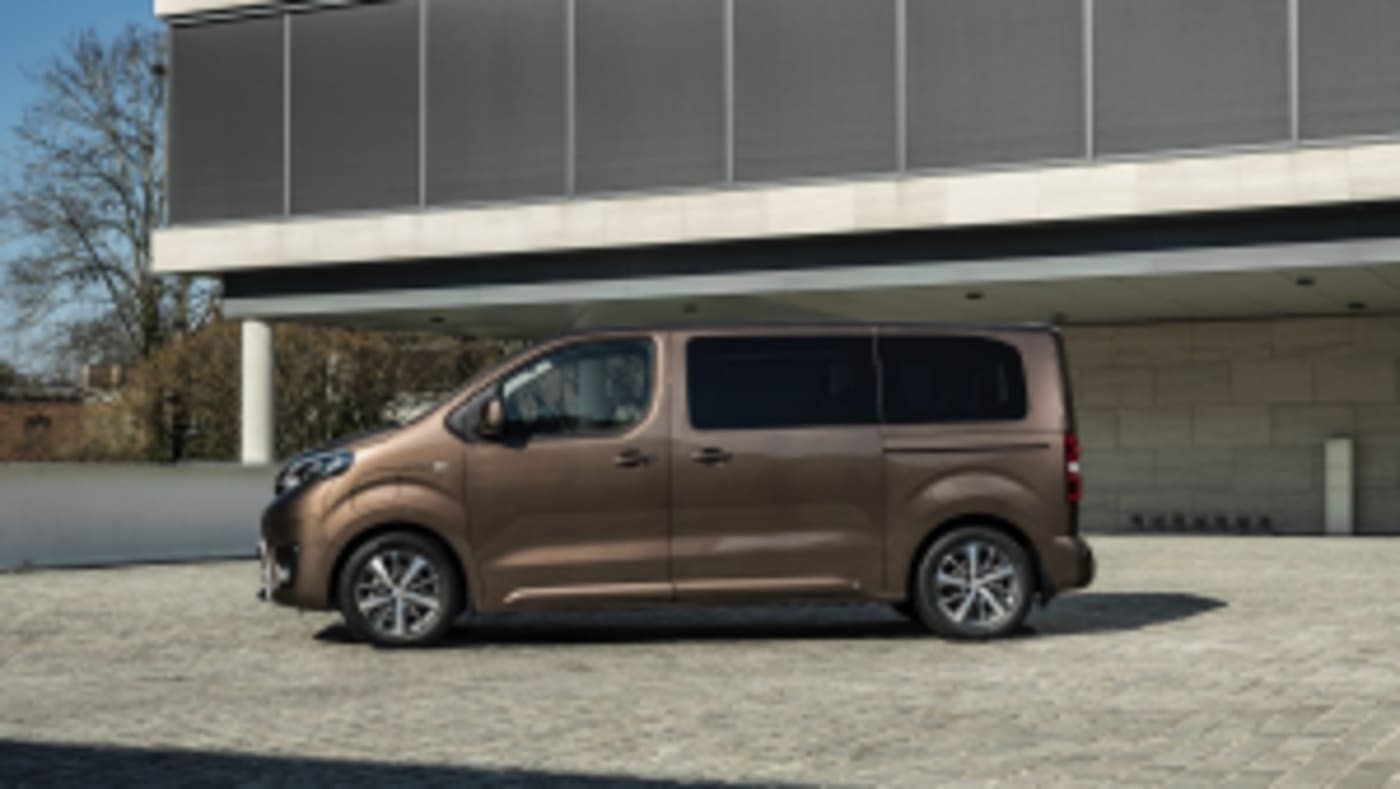

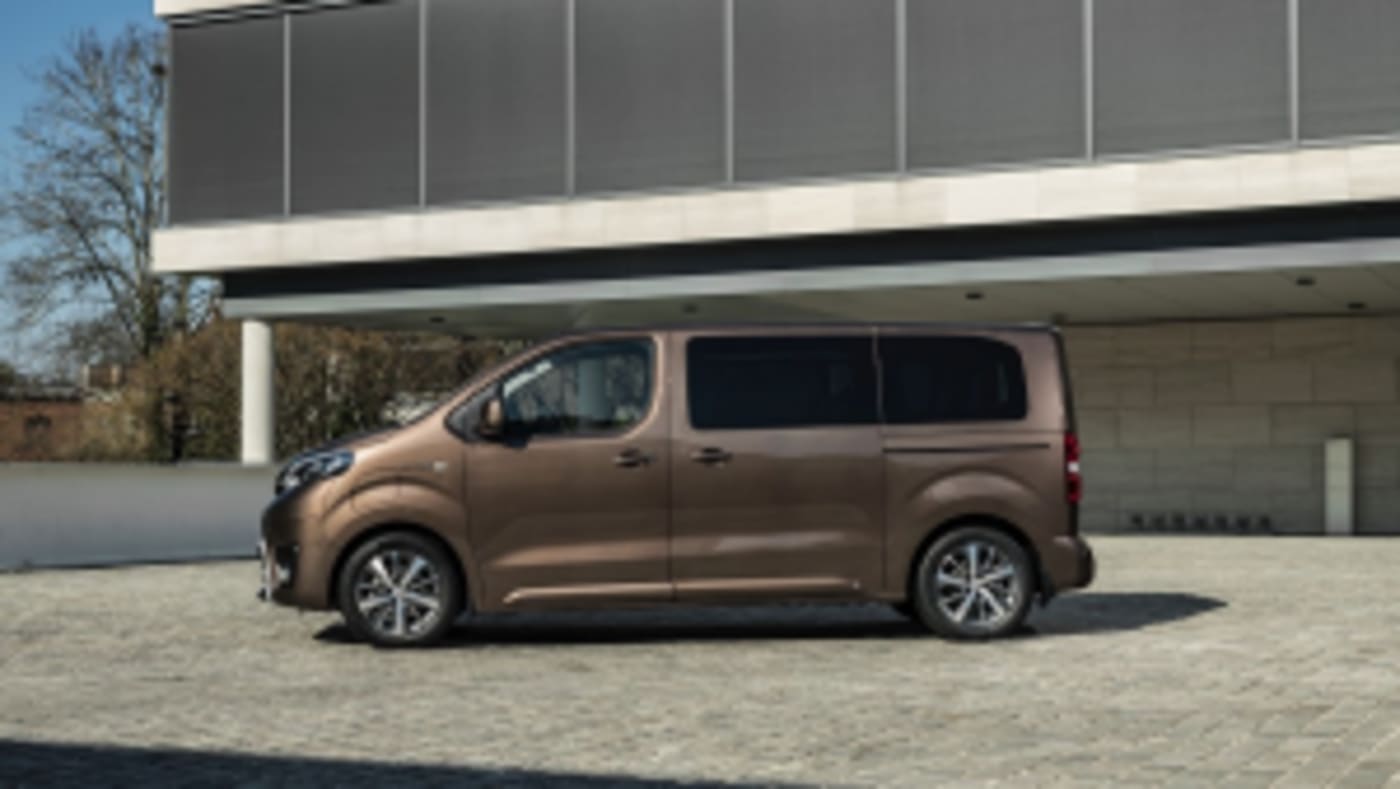



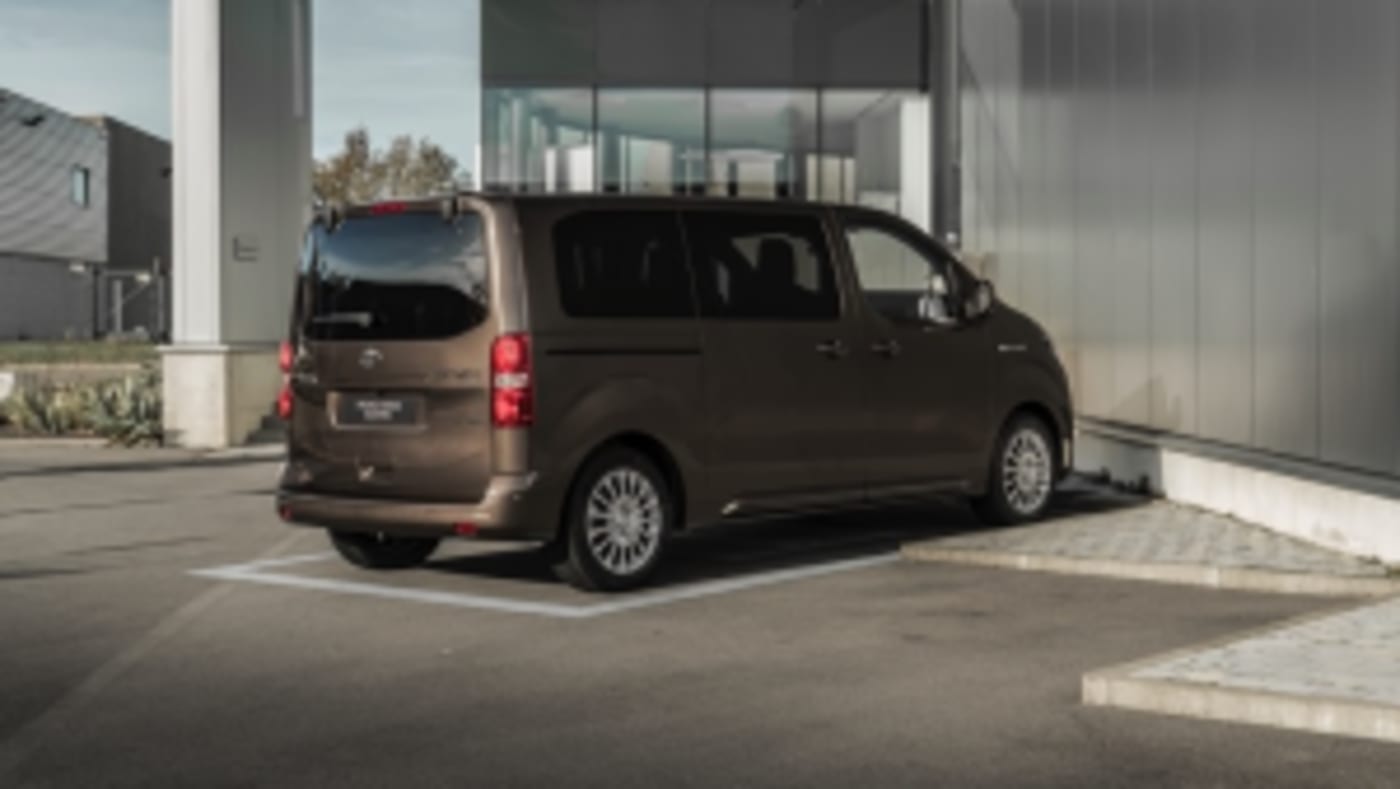

Toyota electric vehicles
Toyota is the world's largest automaker, and it is also one of the leaders in the development and production of electric vehicles. Toyota offers a wide range of electric vehicles, including cars, SUVs, and trucks.
Here are some of the most popular Toyota electric vehicles:
- Toyota bZ4X: The Toyota bZ4X is a midsize electric SUV that offers a range of up to 252 miles on a single charge. It can accelerate from 0 to 60 mph in 7.7 seconds. The bZ4X comes standard with all-wheel drive and a suite of advanced safety features, including automatic emergency braking, lane departure warning, and adaptive cruise control.
- Toyota Mirai: The Toyota Mirai is a hydrogen fuel cell electric vehicle that offers a range of up to 402 miles on a single tank of hydrogen. It can accelerate from 0 to 60 mph in 9.2 seconds. The Mirai comes standard with a suite of advanced safety features, including automatic emergency braking, lane departure warning, and adaptive cruise control.
- Toyota RAV4 Prime: The Toyota RAV4 Prime is a plug-in hybrid electric SUV that offers a range of up to 42 miles on electric power alone. It can accelerate from 0 to 60 mph in 5.7 seconds. The RAV4 Prime comes standard with all-wheel drive and a suite of advanced safety features, including automatic emergency braking, lane departure warning, and adaptive cruise control.
- Toyota Prius Prime: The Toyota Prius Prime is a plug-in hybrid electric car that offers a range of up to 25 miles on electric power alone. It can accelerate from 0 to 60 mph in 11.4 seconds. The Prius Prime comes standard with a suite of advanced safety features, including automatic emergency braking, lane departure warning, and adaptive cruise control.
Toyota is committed to sustainability and to making electric vehicles more accessible to everyone. The company has set a goal of becoming carbon neutral by 2050, and it is investing heavily in electric vehicles and other sustainable technologies. Toyota is also working to expand its network of public charging stations.
What makes Toyota EVs different from other brands?+
When it comes to electric vehicles EVs, Toyota takes a slightly different approach compared to other brands. Here are some key points that set them apart:
Hybrid powertrain focus: Instead of solely focusing on battery-electric vehicles BEVs) like Tesla or Volkswagen, Toyota has heavily invested in hybrid electric vehicles (HEVs for over two decades. HEVs combine an electric motor with a gasoline engine, offering fuel efficiency gains without requiring charging infrastructure. This makes them accessible to a wider audience who might not be ready for a full-electric transition.
Multiple electrification options: While Toyota offers the bZ4X BEV, their main focus lies in a broader spectrum of electrified vehicles. This includes plug-in hybrid electric vehicles PHEVs) like the Prius Prime, and even hydrogen fuel cell electric vehicles (FCEVs like the Mirai. This diversity caters to different driving needs and preferences, potentially reaching a larger customer base compared to brands solely focused on BEVs.
Reliability and longevity: Toyota has built a reputation for producing reliable and long-lasting vehicles, and they aim to carry that over to their electric offerings. Their extensive experience with hybrid technology gives them an edge in terms of battery management and powertrain integration, potentially leading to longer lifespans and lower maintenance costs compared to newer EV brands.
Conservative design approach: Unlike some other EVs with futuristic aesthetics, Toyota EVs often maintain a more conventional design language. This might appeal to customers who prefer a familiar look and feel, or who prioritize practicality and comfort over bold statements.
Focus on infrastructure development: Toyota actively invests in research and development of charging infrastructure and hydrogen refueling stations. This proactive approach could benefit their own EV adoption and also contribute to the overall growth of the EV market.
However, Toyota's approach also has some potential drawbacks:
Slower shift to full BEVs: Their continued focus on hybrids might mean they are lagging behind some competitors in the rapidly growing BEV market. This could put them at a disadvantage in the long run if consumer preferences shift decisively towards fully electric vehicles.
Limited BEV model lineup: Currently, Toyota only offers one dedicated BEV model, the bZ4X. This pales in comparison to brands like Tesla or Chevrolet with a wider range of BEVs in different segments.
Ultimately, whether Toyota's approach is "better" or "different" depends on individual preferences and priorities. If you prioritize fuel efficiency, practicality, and access to charging infrastructure, Toyota's diverse range of electrified vehicles might be appealing. However, if you are looking for the latest technology, a wider range of BEV models, or a more cutting-edge driving experience, other brands might be a better fit.
What are the different models of Toyota EVs available?+
Currently, Toyota offers two battery electric vehicle BEV) models and two plug-in hybrid electric vehicle (PHEV models:
Battery Electric Vehicles BEVs:
- bZ4X: This is Toyota's first dedicated BEV SUV, launched in 2023. It offers a driving range of up to 252 miles on a single charge and comes in both front-wheel drive FWD) and all-wheel drive (AWD configurations. It has a starting price of $42,000.
- Proace City Electric: This is a compact electric van aimed at commercial customers. It has a driving range of up to 134 miles and a starting price of around €35,000 approximately $37,000.
Plug-in Hybrid Electric Vehicles PHEVs:
- Prius Prime: This is a PHEV version of the iconic Prius hatchback. It has an electric driving range of up to 44 miles and a total driving range of up to 583 miles. It has a starting price of $32,350.
- RAV4 Prime: This is a PHEV version of the popular RAV4 SUV. It has an electric driving range of up to 40 miles and a total driving range of up to 386 miles. It has a starting price of $40,250.
In addition to these models, Toyota has also announced plans to launch 10 new BEVs by 2026. So, we can expect more electric vehicles from Toyota in the coming years.
How much do Toyota EVs cost?+
Toyota currently offers only one fully electric vehicle, the bZ4X, so I can give you specific details on its pricing!
However, it's important to note that the price of the bZ4X can vary depending on several factors, including:
- Model and trim level: The bZ4X comes in two trims: XLE and Limited. The Limited starts at a higher price due to additional features.
- Drivetrain: Both XLE and Limited trims are available in front-wheel drive FWD) and all-wheel drive (AWD configurations. AWD models cost slightly more than FWD models.
- Location: Prices may vary slightly depending on your location due to taxes and other fees.
Here's a breakdown of the bZ4X's starting MSRP in the US:
- XLE FWD: $42,000
- XLE AWD: $44,695
- Limited FWD: $44,995
- Limited AWD: $47,595
In other countries, the bZ4X pricing may differ.- For example, in the UK, the starting price is £46,055 for the Pure FWD model.
Here are some resources where you can find more information about the bZ4X's pricing in different countries:
- US: Link
- UK: Link
- India: Link
What is the range of Toyota EVs?+
Toyota's EVs currently have a range that varies depending on the specific model and configuration. Here's a breakdown:
Current Models:
- bZ4X:
- Front-wheel drive: Up to 252 miles EPA estimate
- All-wheel drive: Up to 228 miles EPA estimate
- Proace City Van EV: Up to 153 miles WLTP estimate
Future Models:
- New EV with solid-state batteries:
- Targeted range of 620 miles 1,000km by 2026
- Higher-performance version: Potential range over 900 miles with 10-minute charging time
Important Factors:
- Range estimates: Remember, the official EPA or WLTP estimates are ideal scenarios and may not reflect real-world driving conditions. Factors like driving style, weather, terrain, and accessories can significantly impact range.
- Model and configuration: Different models and trims of the same car can have different ranges due to variations in battery size, motor power, and weight.
- Future technology: Toyota's focus on solid-state battery technology promises significant range improvements in the coming years.
Conclusion:
While Toyota's current EVs may not yet have the longest ranges in the market, their upcoming technology advancements are promising. It's important to consider your specific needs and driving patterns when choosing an EV, regardless of the brand.
How long does it take to charge a Toyota EV?+
The charging time for a Toyota EV depends on several factors, including:
- The specific Toyota EV model: Different models have different battery capacities and onboard charging capabilities. For example, the Toyota bZ4X can charge from 10% to 80% in around 30 minutes using a 150 kW DC fast charger, while the Prius Prime takes about 2 hours and 10 minutes to fully charge on a Level 2 240V charger.
- The type of charger used:
- Level 1 charging: using a standard 120V outlet is the slowest option, taking 24 hours or more for a full charge. This is mainly for occasional top-ups.
- Level 2 charging: This is the most common home charging option, with 240V chargers typically taking 4-8 hours for a full charge on most Toyota EVs.
- DC fast charging: These powerful chargers can add significant range in a short time, with some high-speed DC chargers 150 kW+ reaching 80% charge in as little as 30 minutes.
- Starting battery level: Charging from a depleted battery to full will take longer than topping off a partially charged battery.
- Environmental factors: Extreme temperatures can affect charging speed.
To give you a more specific answer, I would need to know:
- Which Toyota EV model you are interested in.
- What type of charger you are planning to use.
- What is the starting battery level?
Once I have this information, I can provide you with a more accurate estimate of the charging time.
Here are some resources that you may find helpful:
- Toyota bZ4X Charging Time Calculator: Link
- Valdosta Toyota: How Long Does it Take to Charge an Electric Car?: Link
- Steven Eagell Group: How Long Does It Take To Charge An EV: Link
What are the maintenance requirements for a Toyota EV?+
Compared to gas-powered vehicles, Toyota EVs require significantly less maintenance, both in terms of frequency and cost. Here's a breakdown of the key maintenance points:
General Maintenance shared with gas cars:
- Tires: Regular tire rotations, inflation checks, and alignments are crucial for optimizing mileage and extending tire life. Refer to your owner's manual for recommended intervals, typically every 5,000-10,000 miles.
- Windshield wipers and washer fluid: Replace worn blades and keep the reservoir topped up for clear visibility.
- Cabin air filter: This filter impacts air quality inside the car. Replace it every 15,000-30,000 miles or every 2 years, whichever comes first.
- Brake fluid: Monitor the level and address any warnings promptly. EVs use regenerative braking, reducing wear on brake pads, but fluid maintenance is still necessary.
EV-Specific Maintenance:
- Battery: The heart of your EV, regular checks are vital. Though covered by a long warranty 10 years/150,000 miles for Toyota, dealerships can assess battery health and coolant levels. Avoid extreme temperatures and fast charging when possible.
- Coolant system: Like the battery, your Toyota EV has a cooling system to regulate temperature. Monitoring coolant levels and potential leaks is essential.
Additional points:
- Suspension and chassis: Due to the heavier battery, these components might require more frequent inspections and potential maintenance compared to gas-powered cars.
- Powertrain components: Unlike gas cars, there's no engine requiring oil changes or tune-ups. However, some electric drive components like inverters and chargers might need occasional checks.
Overall, Toyota EV maintenance is considerably simpler and cheaper than gas-powered cars. Refer to your owner's manual for specific intervals and consult your local Toyota dealership for any questions or concerns. They can perform scheduled maintenance and assess any potential issues.
Does Toyota offer any tax credits or incentives for purchasing an EV?+
Yes, Toyota offers several incentives for purchasing an EV, including both federal tax credits- and manufacturer incentives:
Federal Tax Credits:
- New EVs purchased in 2023 or later: You can receive a federal tax credit of up to $7,500 for new EVs purchased during this period. The specific amount depends on the vehicle's MSRP, final assembly location, battery component and/or critical minerals sourcing, and your modified adjusted gross income AGI. This means most Toyota EVs should qualify for the full $7,500 credit.
- Used EVs purchased in 2023 or later: You can receive a federal tax credit of up to $4,000 for used EVs purchased from a dealer for $25,000 or less. The amount equals 30% of the purchase price, with a maximum credit of $4,000. However, not all used Toyotas will qualify for this credit.
Manufacturer Incentives:
- Toyota offers additional cash-back incentives for some of their EV models. The specific amount varies depending on the model and region. You can find the current incentives on Toyota's website or by contacting a local Toyota dealership.
- Toyota also offers financing options specifically for EVs, which can sometimes lead to lower interest rates.
Here are some helpful resources to learn more about Toyota EV incentives:
- Toyota EV Incentive Finder: This tool helps you find qualified tax credits, rebates, and other incentives based on your location and the specific Toyota EV model you're interested in. Link
- IRS Credits for New Clean Vehicles: This IRS website provides detailed information about the federal tax credit for electric vehicles. Link
- Fuel Economy Tax Credits: This government website provides information about various tax credits for fuel-efficient vehicles, including EVs. Link
Remember, tax regulations and incentives can change quickly, so it's always best to consult with a tax professional or contact your local Toyota dealership for the most up-to-date information on applicable credits and incentives.
What is the warranty on a Toyota EV?+
The warranty on a Toyota EV actually covers two main components: the vehicle warranty- and the battery warranty.
Toyota Vehicle Warranty:
- Every new Toyota, including EVs, comes with a 3-year/36,000-mile whichever comes first manufacturer's warranty. This covers repairs to most vehicle components due to defects in materials or workmanship.
- Additionally, there's a Powertrain Warranty that lasts for 5 years/60,000 miles and covers the engine, transmission, and other key drivetrain components.
Toyota EV Battery Warranty:
- This is where things get specific to EVs. Toyota offers a generous 8-year/100,000-mile warranty on their EV batteries. This warranty covers not only a fully functional battery but also protects against abnormal loss of capacity.
- The battery must maintain at least 70% of its original capacity for the warranty to remain valid.
- Additionally, you can extend the EV battery warranty for up to 15 years/150,000 miles by getting your Toyota EV serviced at authorized Toyota dealerships at recommended intervals.
Things to remember:
- The specific warranty terms may vary depending on the model year and region. Always check the owner's manual or contact your local Toyota dealership for the exact details of your warranty coverage.
- Some exclusions and limitations may apply to the warranty, so be sure to read the fine print carefully.
Where can I learn more about Toyota EVs?+
Toyota offers a range of electrified vehicles, including hybrids, plug-in hybrids, and battery electric vehicles, so there are several resources you can choose from, depending on what you'd like to learn:
Official Toyota websites:
- Global: Link
- US: Link
- UK: Link
- Australia: Link
These websites provide an overview of all Toyota's electrified vehicles, including specifications, features, and comparisons. You can also find information about test drives, dealer locations, and financial incentives.
Specific vehicle pages:
Each Toyota EV has its own dedicated webpage with detailed information about its features, technical specifications, performance, and pricing. You can find links to these pages on the main websites or by searching for the specific model name.
Videos:
Toyota has a YouTube channel with several informative videos about their electrified vehicles. You can find videos about specific models, technology explanations, and comparisons with other brands.
Social media:
Toyota is active on social media platforms like Twitter and Facebook. You can follow them for updates on new releases, events, and news about their EV lineup.
Local dealerships:
Your local Toyota dealership is a great resource for learning more about their EVs. They can answer your questions, let you test drive a vehicle, and provide information about local incentives and availability.
Independent reviews:
There are many websites and publications that offer independent reviews of Toyota EVs. These can be a good way to get a more objective perspective on the vehicles' performance, pros and cons, and how they compare to competitors.





































